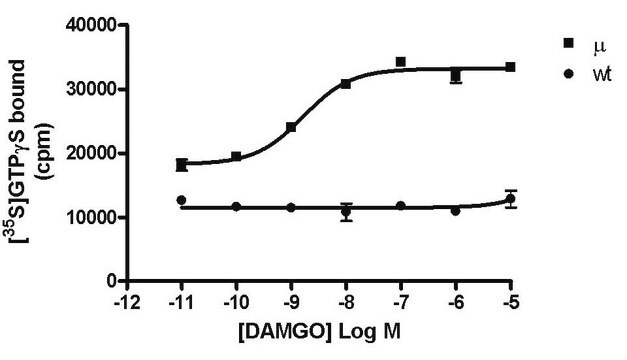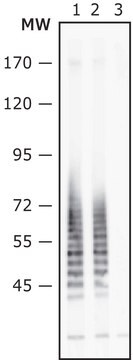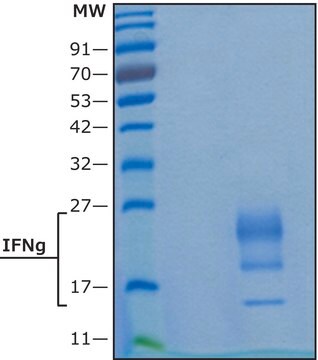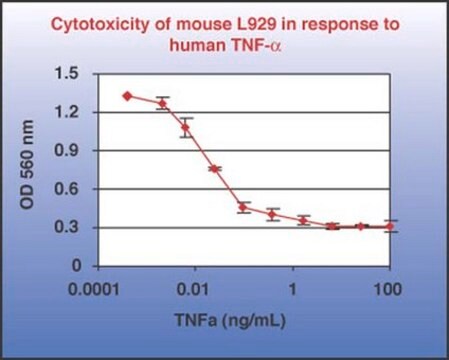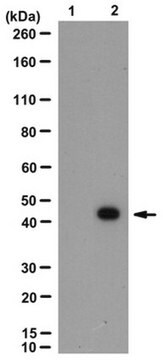MABF2091
Anti-CD6 Antibody, clone 34-3
clone 34-3, from rat
Synonym(s):
T-cell differentiation antigen CD6
About This Item
Recommended Products
biological source
rat
Quality Level
antibody form
purified immunoglobulin
antibody product type
primary antibodies
clone
34-3, monoclonal
species reactivity
mouse
packaging
antibody small pack of 25 μg
technique(s)
flow cytometry: suitable
isotype
IgG2bκ
NCBI accession no.
UniProt accession no.
target post-translational modification
unmodified
Gene Information
mouse ... Cd6(12511)
Related Categories
General description
Specificity
Immunogen
Application
Inflammation & Immunology
Quality
Flow Cytometry Analysis: 1 µg of this antibody detected CD6 in one million mouse splenocytes.
Target description
Physical form
Storage and Stability
Other Notes
Disclaimer
Not finding the right product?
Try our Product Selector Tool.
Storage Class Code
12 - Non Combustible Liquids
WGK
WGK 1
Flash Point(F)
Not applicable
Flash Point(C)
Not applicable
Certificates of Analysis (COA)
Search for Certificates of Analysis (COA) by entering the products Lot/Batch Number. Lot and Batch Numbers can be found on a product’s label following the words ‘Lot’ or ‘Batch’.
Already Own This Product?
Find documentation for the products that you have recently purchased in the Document Library.
Our team of scientists has experience in all areas of research including Life Science, Material Science, Chemical Synthesis, Chromatography, Analytical and many others.
Contact Technical Service

